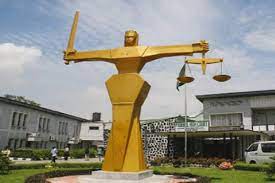Last week, a secondary school student who bullied her colleague made the news. There was video footage on social media of the young girl slapping another female student within the school premises. With the news all over social media, certain Federal ministries were alerted and the school was temporarily shut down. The matter was investigated and parents were contacted- and the matter is still ongoing.
Bullying is more or less a common practice in many schools around the world, and because of how common it seems, many people including the children involved, may not realize that it is a criminal offence.
Physical assault is a crime with a penalty of 1 year imprisonment in Southern states and 3 years imprisonment in the Northern states in Nigeria.
This week, we’re talking about a topic that isn’t talked about often – the juvenile justice system. We want to explain to you what happens when a minor commits a crime and how offenders are prosecuted and penalized.
A Few Juvenile Facts:
A juvenile is an individual who is less than 18 years of age.
A child who is less than 7 years old cannot be criminally liable.
A child who is between 7-11 years is also incapable of being held criminally liable except where it is proved that the child knew that what he/she was doing was wrong at the time of committing the offence.
What happens when a juvenile is arrested in Nigeria?
When a juvenile is suspected to have committed an offence, he/she is arrested like an adult would be. Any statement made by the juvenile to the arresting officer can be used against him/her in Court.
The juvenile is taken to the police station for fingerprinting and photographing. Afterwards, he/she is charged and brought before a Juvenile Court. A juvenile court is presided over by a Magistrate. He/she is prosecuted and if found guilty, sentenced according to the law.
Unlike the trial of an adult in a regular court, the trial of a juvenile is not open to the general public, only interested parties, lawyers and other accredited persons are given access to the court rooms. This is because the right to privacy of a child as contained under Section 8 of the Child Rights Act 2003 is respected at all stages of child justice administration in order to avoid labeling, character assassination or harm being caused to the child by undue publicity.
Can a juvenile be tried in a regular court?
Yes. There are two instances where a juvenile would be tried in regular court, they are:
When a juvenile commits a capital offence: A capital offence is an offence that is punishable by death. Examples include; murder, armed robbery, treason, etc. If a juvenile commit any of these crimes and other capital offences, he/she would be tried like an adult in a regular court.
When a juvenile is charged together with an adult for an offence: Where a juvenile jointly commits an offence with an adult and is charged together with the adult, he would be tried in a regular court.
How is a juvenile punished?
Although a juvenile can be tried for capital offences, he/she cannot be sentenced to death.
Irrespective of the offence committed, a child cannot be sentenced to death. Instead of the death penalty, convicted juveniles are housed in facilities referred to as Borstal institutions.
Subscribe to the Advocate News letter and receive news updates daily in your inbox.
 Advocate.ng Latest news update on politics, entertainment, sport and more
Advocate.ng Latest news update on politics, entertainment, sport and more



